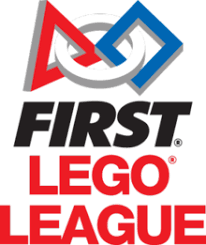STEM Camps and Workshops
Celebrating 19 Years of STEM-focused Student Programs

Note: Courses with this symbol indicates that the workshop is a high school course for students entering grades 10–12 during Fall 2024
Summer 2025 Workshops Listed by Week

Introduction to Programming with Java
June 16–20, 2025 (four days)
Course Overview
Workshop participants will be taught basic to intermediate level skills of the state-of-the-art photo imaging software – Adobe Photoshop! The workshop will offer instruction on the following:
- Shapes, image editing & manipulation
- Marquee and selection tools
- Brush tools
- Specialty tools (eyedropper, Spot Healing Brush, Clone Tool, and more…)
- Saving and file management
- Simple animation (meme-building & rotoscoping)
- An introduction to the elements and principles of design
Additionally, students will be introduced to web-based, free alternatives to Photoshop that can be accessed and used on a web browser on any computer.
Students will use the computer lab desktop computers, but will be asked to bring a portable USB storage device (with at least 10 GB capacity) for saving & transporting files.
This is an introductory course. Comfort with basic computer functions is helpful but not required.
If you enjoy working with static & dynamic images, or if you want to learn more, you’re going to have a
Instructor: Joe Pistone, San Diego Computer Science Teachers Association
Grade Level: Open to students entering grades, 9–12
Course Fee: $250.00

Blast Off, Space Crew! Beginning Robotic Adventures with LEGO EV3 & SPIKE PRIME
June 16–20, 2025 (four days
Course Overview
Discover the ultimate LEGO® challenge by combining LEGO® elements with an EV3 LEGO® MINDSTORMS® programmable brick, motors, and sensors to learn mechanical design, programming, strategy, innovation, robot performance, and innovative solutions to real-world problems.
Students will work as Scientists and Engineers, immersing themselves in motivating STEM activities that develop creative problem solving, communication, and teamwork skills.
This exciting space exploration curriculum includes: Learning Missions, Challenge Missions, and Research Projects. Each mission and project is a fun and engaging STEM learning opportunity.
Instructor: Lori Holland, San Diego Unified School District
Grade Level: Open to students entering grades 5–7
Course Fee: $250.00

Beginning Automation & Robotics with VEX EXP
June 23–27, 2025
Course Overview
In VEX Automation and Robotics (AR) students explore robotics and automation as they take on the role of interns, and work in teams to create prototypes to meet the needs of clients. They build and analyze mechanical systems and automate them with programmed input and output devices.
Students work as Scientists and Engineers, immersing themselves in motivating STEM activities that develop creative problem solving, communication, and teamwork skills.
Lesson 1: Automating Mechanisms
Students explore how gear trains and other mechanisms transfer movement in mechanical systems and design, build, and program automated systems to meet the needs of clients. In the end-of-lesson project, students can choose to design an interactive device to keep pets physically and mentally active, a spinning street sign to warn drivers to slow down and stop, or a high-speed dragster.
Lesson 2: Sensors and Systems
Students investigate the versatility of an optical sensor as a programmed input device. Students extend their knowledge of mechanisms as they design increasingly complex prototypes to serve the needs of users. In the end-of-lesson project, students connect inputs to outputs through programming to create effective solutions that help their communities.
Lesson 3: Create and Automate
Students design solutions using an automated mechanical system and the programming necessary for communication between the sensors, motors, and building components. Students pick their own problems or select problems that highlight their creativity and are of service to others. Throughout the unit students reflect on their growing skills and interests and explore careers in the field.
Course Goal
The goal of this course is to immerse students in STEM through the excitement of building and programming robots. Today’s tools will be used to shape the minds of tomorrow’s problem solvers.
How the Class Will Be Taught
This course will use a variety of instructional strategies to move students progressively toward a stronger understanding of automation and robotics and, ultimately, greater independence in engineering and programming. Students will be introduced to new topics through demonstrations or brief readings of mission objectives and suggested programming followed by the opportunity to put the concepts into practice. Each lesson or challenge will build upon the last. Students will be expected to work collaboratively to troubleshoot and to solve open-ended challenges.
Instructor: Lori Holland, San Diego Unified School District
Grade Level: Open to students entering grades 6–8
Course Fee: $340.00

Introduction to Programming Using Python
June 30 – July 3, 2025 (four days)
Course Overview
This workshop introduces object oriented programming development and design using Python. Students will learn basic programming language concepts including Python syntax, input/output and control structures. Object oriented concepts will be introduced including Python classes that contain variables and methods. Students will focus on problem solving skills by program design and algorithm development using sound software engineering practices.
This course will start with the very basics, assuming that students do not have any previous Python programming experience. It does not require any other programming experience. This course will introduce basic programming concepts using the Python programming language.
Python (named after the British comedy troupe and not the snake) is an interpreted programming language originally developed by Guido van Rossum and used by companies in the Arts, Business and Education. Since its inception years ago, Python has become one of the most popular programming languages in commerce and gaming.
Course Goals and Learning Outcomes
- Develop Python programs that contain sequence, selection and iteration control structures.
- Develop Python programs that contain methods that may have parameters and a return type.
- Understand the concepts of Objects and Python classes.
- Work with PyGame, a set of Python modules designed for writing games.
Structure
This course is taught using classroom and lab instruction employing lecture/demonstration, in-class exercises, student participation, and class activities leading to a final project. Classes will include introductory concept presentations, followed by in-class exercises. While students are invited to bring their own laptops to class, the UCSD lab will have all necessary hardware and software installed for their use each day. Python is cross platform and may be run under Windows, Mac OS X or Linux.
Topics to be covered during the week
Module 1: –Introduction to Python
–Introduction to the IDE environment
–Python keywords
–Primitive data types
–Input/Output
Module 2: -Selection Control Structure
-Methods
-Algorithm Development
Module 3: -Iteration Control Structure
-Algorithm Development
Module 4: -PyGame Introduction
-Game Design and Implementation
Module 5: -Final Project: Putting the pieces together.
Prerequisites:
- Must be a current high school student in grade 8-12.
- Successful completion of Algebra 1 or Integrated I.
- A basic understanding of computers.
Instructor: Joe Pistone, Retired, Sweetwater Union School District
Grade Level: Open to students entering grades 9–12
Course Fee: $250.00

2D Computer Game Design using Javascript and p5play
July 7–11, 2025
sClass meets at the University of California, San Diego from 8:30am – 3:00pm.
Course Overview
In a world driven by technology, the ability to code is increasingly valuable and accessible. This camp is for beginners to more advanced students eager to explore coding creatively. This immersive camp introduces participants to programming fundamentals, guiding them through the creation of interactive games using JavaScript and the p5.play library. From novice to game designer, campers will delve into JavaScript basics, mastering variables, conditionals, loops, and functions. Through hands-on coding, they’ll craft their own games, honing skills in graphics, user input, mechanics, and collision detection. With a learn-by-doing approach, campers will showcase creations, receive feedback, and collaborate. By camp’s end, attendees will have a game project and foundational coding understanding, along with resources for further learning. Whether a student, aspiring developer, or coding enthusiast, this camp is your portal to the captivating realm of programming and game design, where ideas morph into interactive realities on screen. Join us and embark on your coding journey!
Instructor: Dvora Celniker, Canyon Crest Academy
Grade Level: Open to students entering grades 10–12
Course Fee: $340.00. (Payable after student selection)
UCSD Zero Tolerance Behavior & Web Responsibility Rules of Conduct
Behavior
- Profanity and vulgar language on the part of the student is prohibited.
- Students may not exhibit aggressive behavior towards another student.
- Students may not place his/her hands on another student.
- Student conduct, either individually or in a group, that is intentionally disruptive to or designed to be disruptive to the program may result in dismissal from the program.
- Disrespect towards UCSD staff and classroom teaching assistants will not be tolerated.
- Possession of a weapon of any kind is strictly prohibited and will result in the student being sent home without a refund. A weapon is defined as any knife, tool, or implement capable of inflicting serious bodily harm.
- Accessing any outside food delivery service is prohibited.
Web
- Digital or photographic artwork must represent the original work of the student and must not include plagiarism or copyright violations.
- Digital and photographic artwork may not contain profanity, vulgar language, or statements that promote hatred towards an individual, race, or community.
- UCSD staff reserves the right to determine what is deemed inappropriate.
- Viewing or accessing material that may be deemed inappropriate by StudentTECH staff will be cause for parental notification and possible dismissal without refund.
- Viewing or accessing video games or social networking sites during class instruction will be cause for parental notification and possible dismissal without refund.
- The student is solely responsible for the content of his/her project creation.
Questions?
If you have any questions about the registration process, please contact Ange Mason, SDSC Education and Outreach, via phone at (858) 534-5064 or email at amason@ucsd.edu.
Privacy Policy
The San Diego Supercomputer Center is proud to demonstrate our commitment to your privacy. We will treat personal information received via workshops registration forms in a manner consistent with current Privacy Policy standards. Information submitted to us via email, fax or US mail will not be shared with entities outside of the San Diego Supercomputer Center at the University of California, San Diego and will be used only for the purpose for which it is intended.
Mailing Address
Ange Mason
Attn: SDSC Summer Workshops
San Diego Supercomputer Center
UC San Diego
9500 Gilman Drive
MC 0505
La Jolla, CA 92093-0505
SPECIAL NOTE TO CREDIT CARD USERS:
When using a credit card, rather than a personal check or money order, please be sure that you do not intend to cancel your registration. Our credit card transactions are processed through industry standard authorizee.net, which allows 120 days from time of purchase for credit card refunds. After that time, UCSD cannot process a credit card refund.
Our Refund Policy
In order to best serve our students, SDSC StudentTECH has a firm cancellation policy. Cancellations or changes must be made in writing at least 10 business days prior to the first day of class. Cancellations will receive a refund of 50% of the course registration fee. No refunds will be issued after 10 business days prior to the first day of class. As of summer 2017, credit for future courses will no longer be issued. Students who are no shows will not be eligible for a refund and may not be rescheduled to another course.



